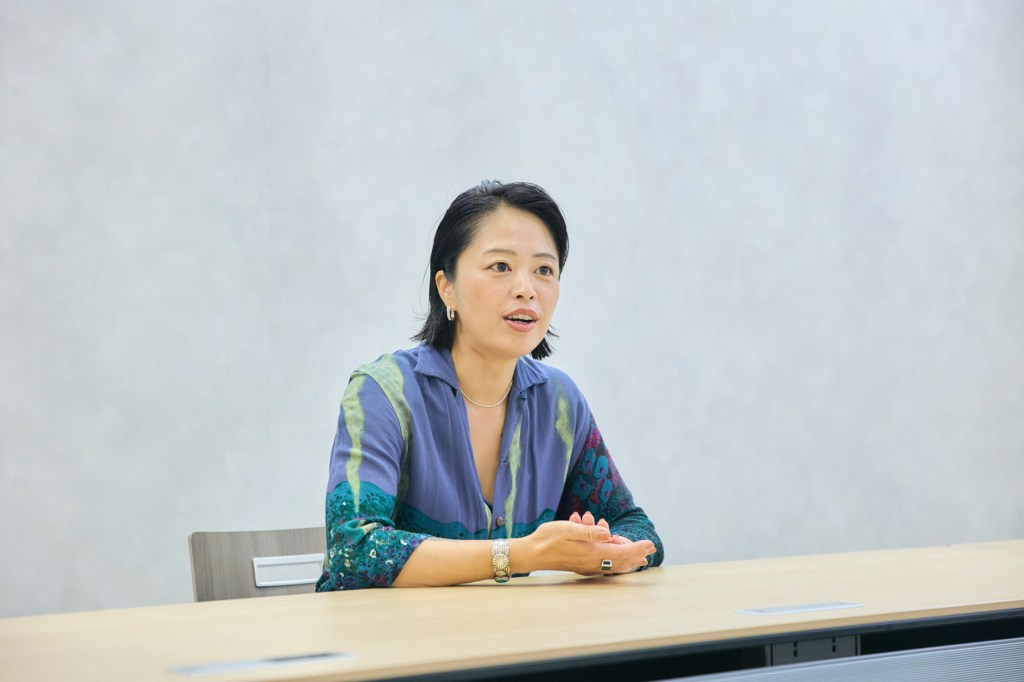Billboard honors leaders driving the success of the music business outside the U.S. through its Billboard Global Power Players list. Among the industry figures recognized this year is Taeko Saito, Senior VP of business development and strategies, Asia Pacific at EMPIRE, marking her first appearance on the list. To commemorate the achievement, Billboard Japan spoke with Saito about EMPIRE’s business strategy, the growth of streaming markets across different countries, and the challenges facing Japan’s music industry today.
Could you tell us a bit about your background?
Taeko Saito: I spent most of my childhood in the U.S., and after graduating from university, I began my career as an assistant at AAM, a music producer management company. I later joined the publishing company SONGS Music Publishing as an A&R, where I handled deals with artists like Diplo, Lorde, and The Weeknd. After that, I moved to Downtown Music Publishing, where I helped establish its Japan office, and since 2023, I’ve been working at EMPIRE.
Tell us about EMPIRE’s business operations.
EMPIRE was founded in 2010 as a music distribution company. At the time, there were very few distributors specializing in specific genres, but we focused on hip-hop from the start. From there, the company expanded into label and publishing operations, leading to where we are today.
What led EMPIRE to focus on hip-hop?
It comes from a desire to share music from underrepresented communities with the world. Our CEO, Ghazi (Shami), comes from an immigrant background, which may have influenced that vision. He grew up in San Francisco surrounded by street culture, so in many ways, the focus on hip-hop was a natural extension of that. These days, though, we’re not limited to hip-hop — we’ve expanded into regions like Africa and Asia. One of the fastest-rising artists on our roster right now is Shaboozey, a Black country artist.
With streaming now the dominant form of music consumption, artists no longer need to be signed to a record label to release their work. They can do everything independently, though many still don’t fully understand the options available to them or the finer details of how to navigate that process. That’s where we come in: we offer independent artists a range of contract structures and opportunities tailored to their needs. Our goal is to show that there’s more than one way to succeed, and that artists can take flight in ways beyond the traditional system.
Your work focuses on the Asia-Pacific region, is that right?
Yes, mainly Asia. Aside from myself, we have staff based in Singapore and Indonesia, and we work closely together. Also, EMPIRE’s workforce is culturally diverse, with people from many different countries. This mix of cultures makes it reassuring to have headquarters collaborating with us as part of the same team.
The streaming market is slowing but still growing, with particular attention on Asia, Africa, and South America. How does EMPIRE view this situation?
Expectations for growth in Asia are very high. For example, a recent deal I handled was with a label in Cambodia. Spotify only became available there four years ago, in 2021.
That’s quite recent.
Yes. The music business there is still very young. Among the labels we’ve signed, the most successful artist is VannDa, whose videos have racked up hundreds of millions of views on YouTube and who’s seen remarkable growth just over the past year. Countries like Myanmar and Laos also have predominantly young populations, which makes them especially eager to embrace new services.
That said, there are still challenges on the business side in that royalty rates remain low. Japan has the highest rates in Asia, but in other countries, they’re significantly lower compared to regions outside Asia. It’s a complex issue that involves negotiations between nations, but I believe continued dialogue will help drive further growth.
Japan is often seen as a rare example of a country where CD sales and streaming coexist in its music market. What are your thoughts on this situation?
I think it’s wonderful how Japanese artists place such great importance on quality and on treating each fan with genuine care. However, I’m not sure the same approach would necessarily be accepted in the U.S. in exactly the same way. There are cultural differences and what people embrace or don’t, what they find easy or difficult to digest. That’s why I feel the way music is presented varies greatly from country to country.
I also think that what “success” means can differ from artist to artist. For example, say an artist wants to go global and win a Grammy. But is the goal simply to win a Grammy, or to earn the recognition of the Recording Academy members and to have them feel that this artist deserves a Grammy? Those may sound similar, but the narratives are very different.
And if the goal is to top the Billboard charts, that’s another story altogether. Grammy-nominated artists or works aren’t always those with the greatest commercial success — cultural impact, musicality, and message often carry more weight. So sometimes, winning a Grammy and achieving commercial success don’t necessarily go hand in hand.
So in terms of differences between Japan and other countries, I think the definition of success itself is different. In Japan, there’s a strong focus on nurturing lifelong bonds with each fan — the kind of fan who will buy CDs and cherish that artist for years. The approach is completely different overseas, and I think that gap is part of why the two worlds haven’t always connected. Still, many have continued to take on new challenges, and with the precedent set by K-pop, there’s now a growing sense of optimism across Japan’s music industry. I think what’s most important going forward is to stay adaptable and keep pushing forward with that spirit of challenge.
Have you noticed any major changes in the U.S. music scene over the past ten to twenty years?
The biggest shift has been in the independent music scene. Twenty years ago, “independent label” mostly brought to mind alternative bands, but now artists of all kinds own their rights and release their music on their own. Seeing that change makes me think Japan can move in the same direction. For idol groups and similar acts, where producers lead the projects, it’s natural for those producers to claim ownership of the rights. But for singer-songwriters, bands, or rappers who write their own material, I’m not sure that same structure always fits. Some artists may thrive under that traditional setup, while others might prefer to manage their own work and release independently. I believe that the latter market will only continue to grow, and when that happens, it’ll be crucial for major labels and agencies to adapt accordingly.
When you look at organic reactions online, you often see artists who go viral once but fade quickly afterward. In those moments, what really matters is an artist’s ability to build their brand and develop a lasting fan base. Today’s younger audiences move fast and shift to the next trend almost instantly. In that kind of environment, understanding what makes an artist someone you want to keep following is where labels and management teams can really make a difference.
And because artists now have the right to choose their own path, I want them to think carefully about what approach best suits them. When I sign an artist, I always make it clear that EMPIRE isn’t a one-size-fits-all label. The artists we work with are business owners in their own right — people who can think about how to evolve and expand their own ventures. Only a small number of artists are truly the right fit for EMPIRE, but for those who are, we’re confident we can help them grow more than anywhere else.
Are there any Japanese artists currently signed to EMPIRE?
Yes, we recently signed an artist named Litty. She only began releasing music last year, so she’s been active for about a year now. She also took part in a songwriting camp we hosted recently, where she collaborated with overseas artists for the first time. She absorbed everything like a sponge, and it was inspiring to see.
Billboard recently launched in Africa, signaling growing global attention on music scenes outside the West. What are your thoughts on that trend?
It’s hard to say definitively why African music has become so deeply rooted in the U.S., but I think part of it comes from a desire within the Black community to reconnect with their roots. Looking at trending charts, there are moments when I sense a similar response among Asian listeners in America — almost as if they’re reacting to how Asian artists haven’t always been fully recognized in the past. Seeing the global success of artists who weren’t traditionally part of the mainstream, especially in K-pop, feels like a reflection of more people embracing their own roots and identities.
The U.S. is the world’s largest music market and a multicultural nation. Do you think it’s because of that diversity that music from so many different countries is being heard there and spreading globally through social media and streaming?
Exactly. The music industry is undergoing a fascinating transformation right now. Music is being heard across borders more than ever, and listeners have become increasingly open to that diversity. For us, Asia still has so much untapped potential. Going forward, we want to build on EMPIRE’s strengths while exploring how best to adapt them to each country’s unique landscape.
—This interview by Naoko Takashima first appeared on Billboard Japan


